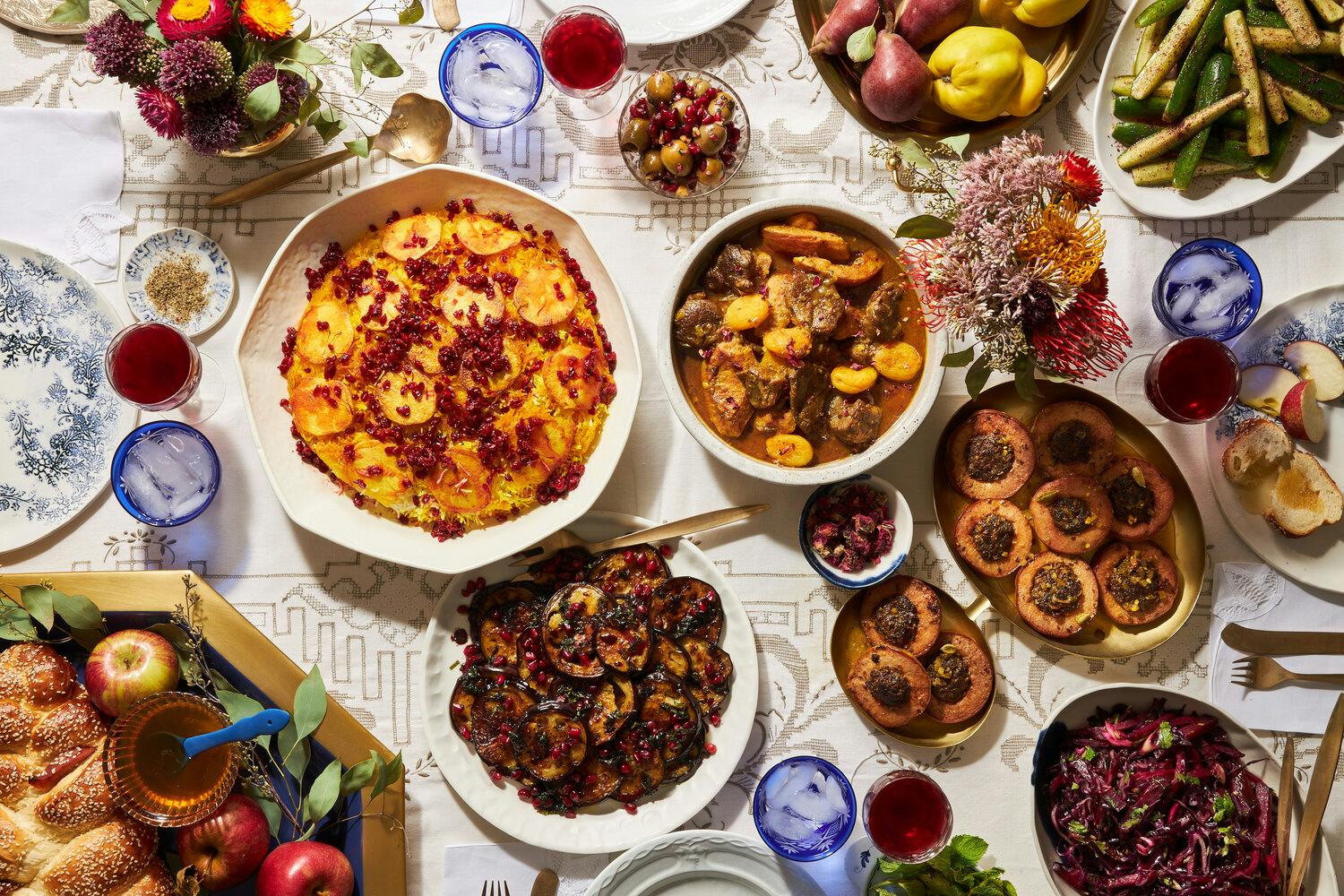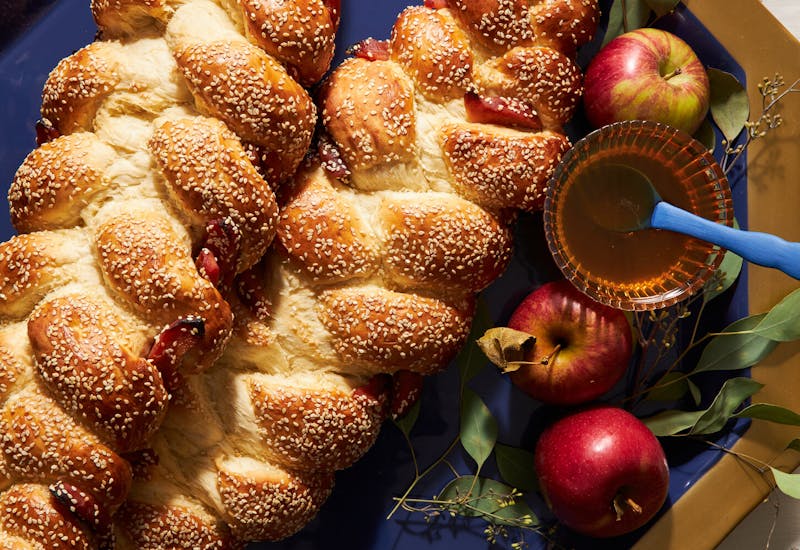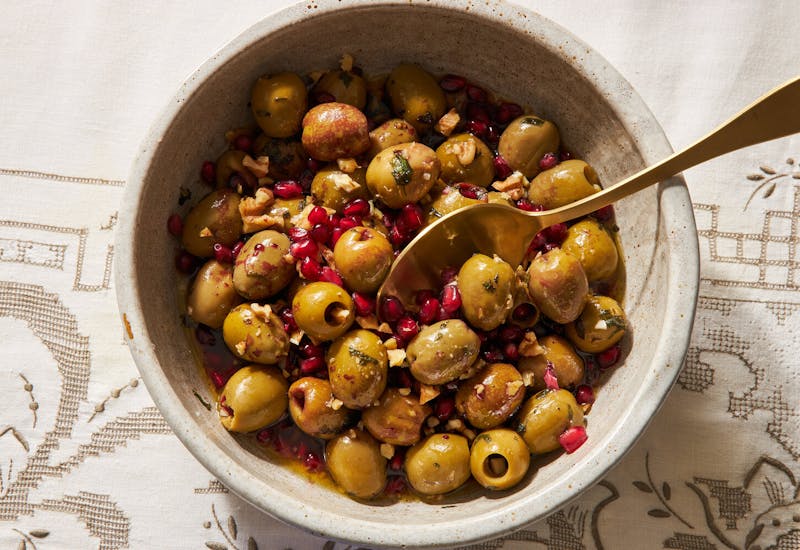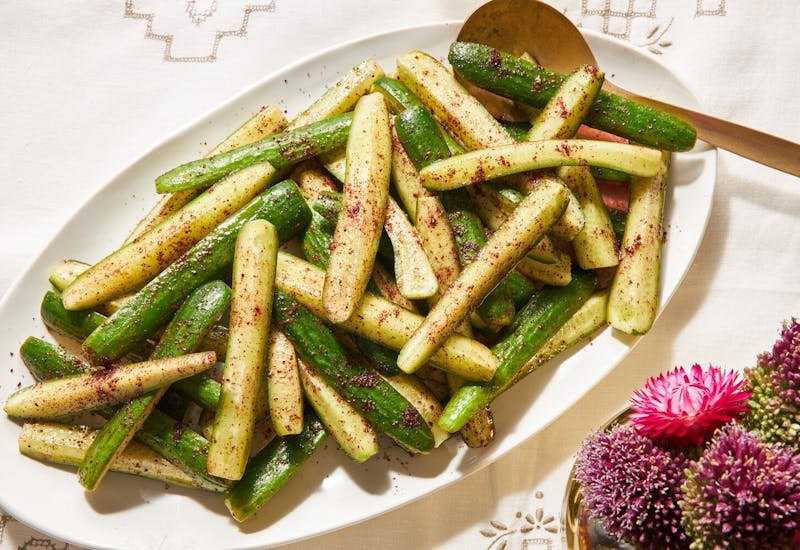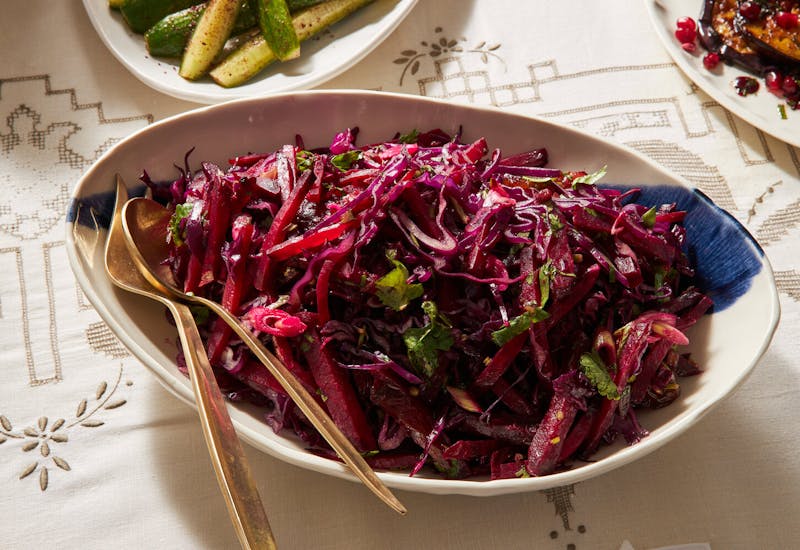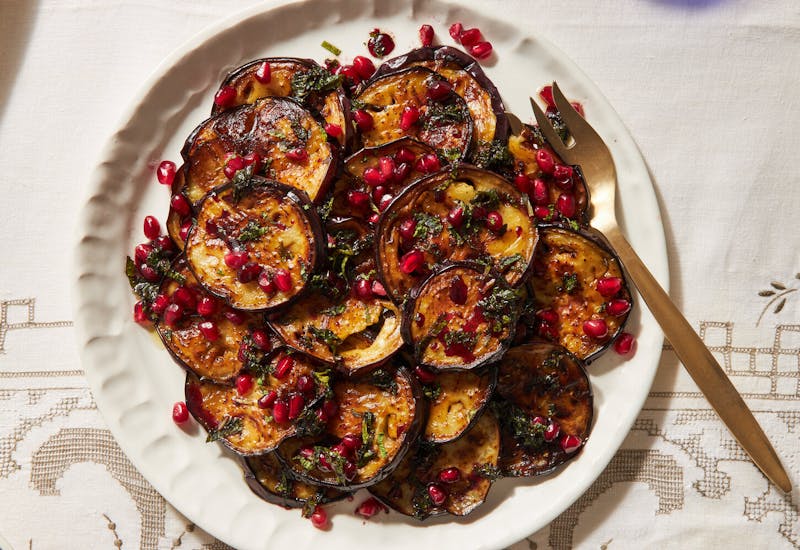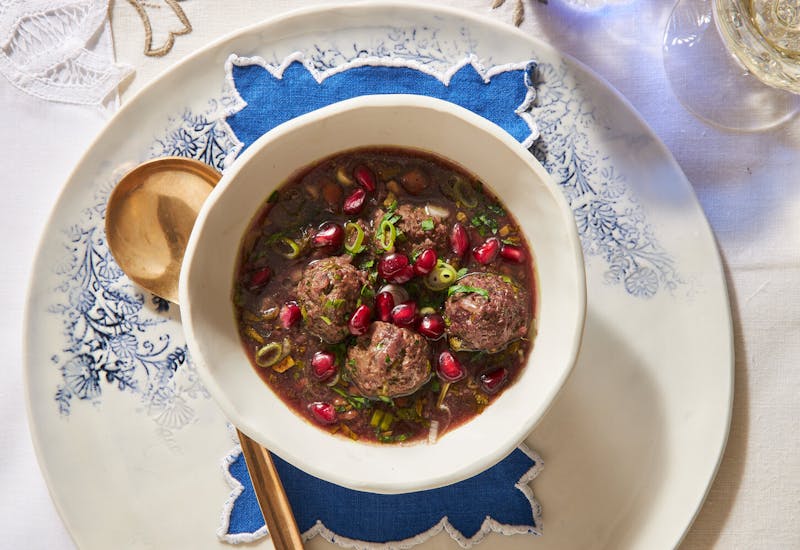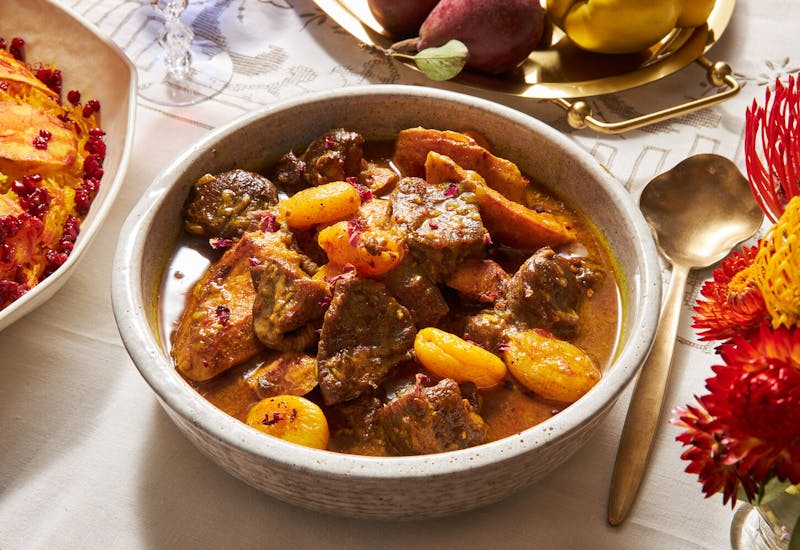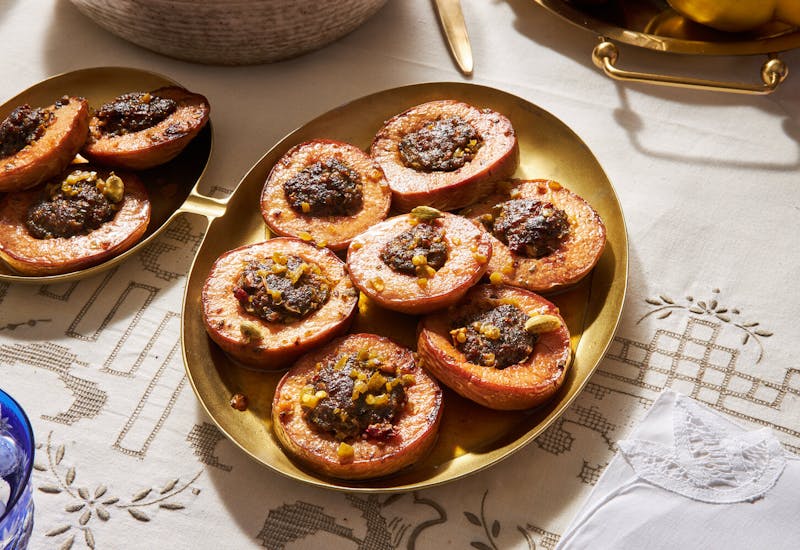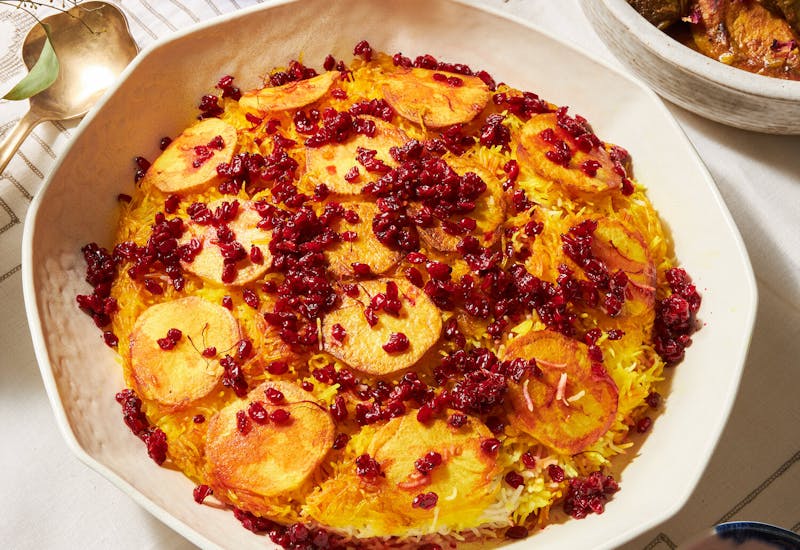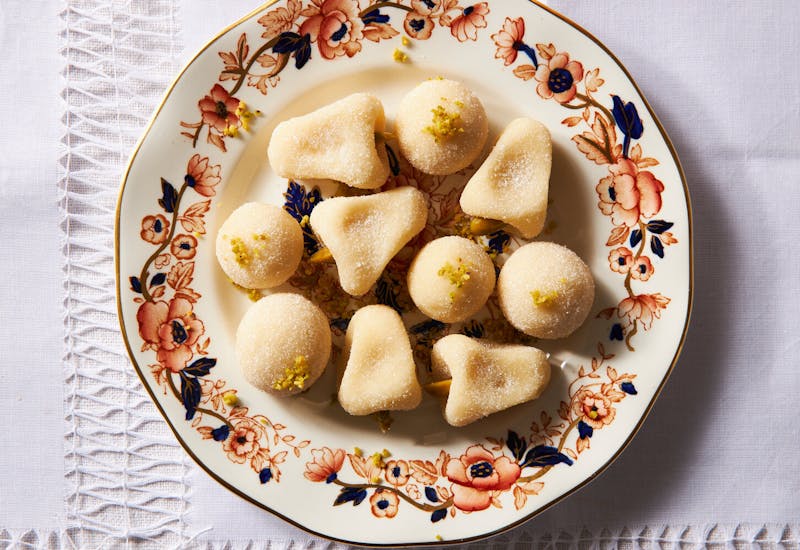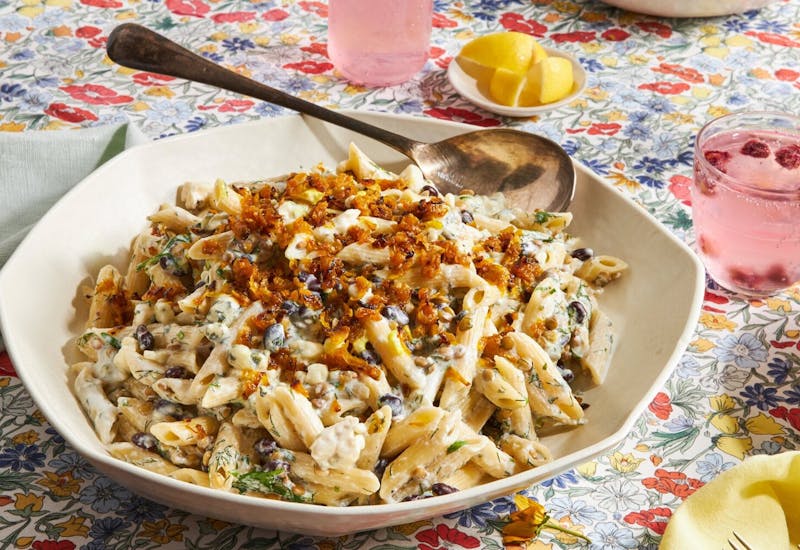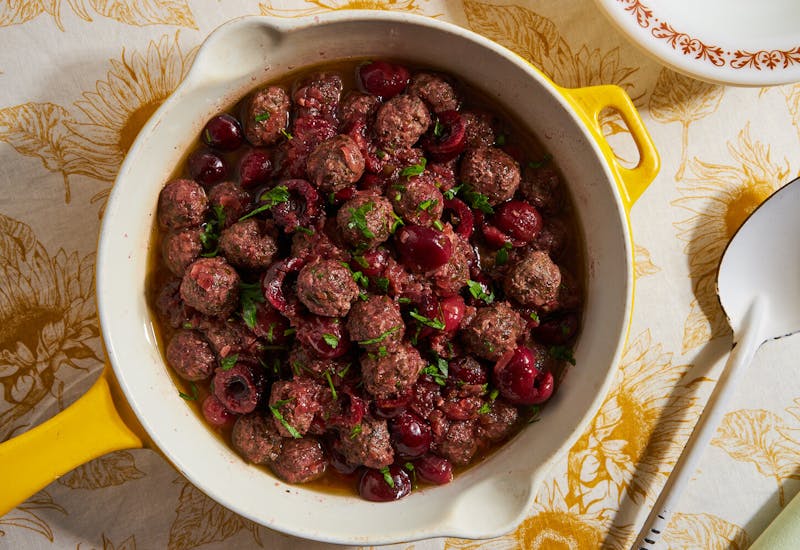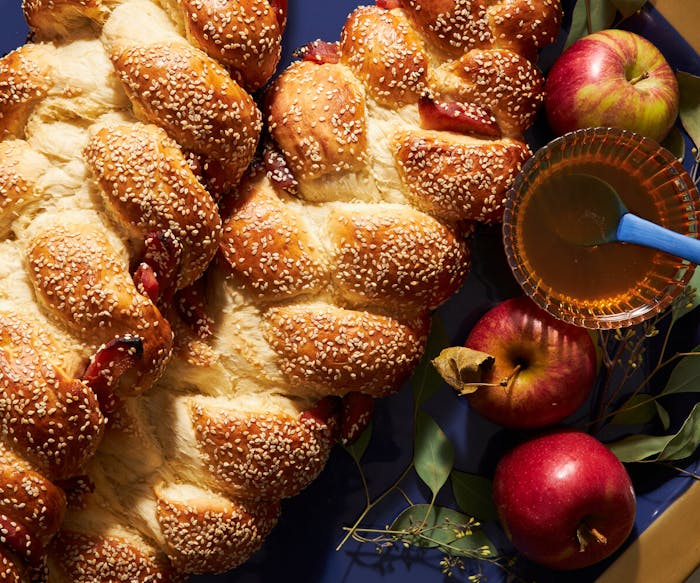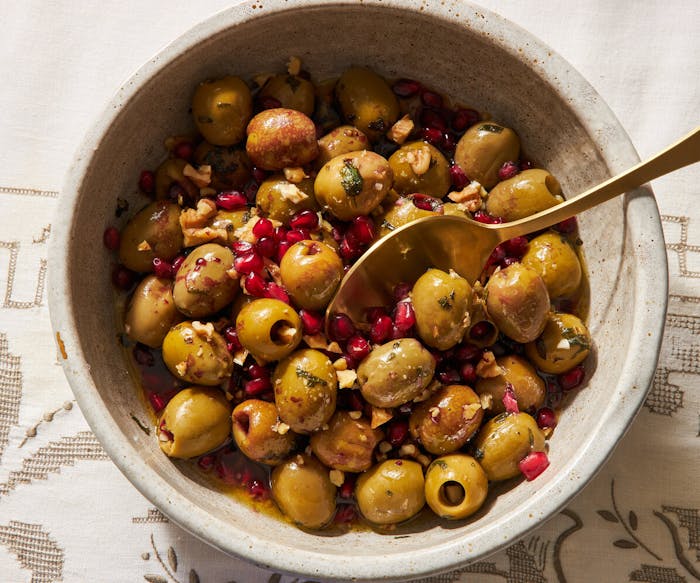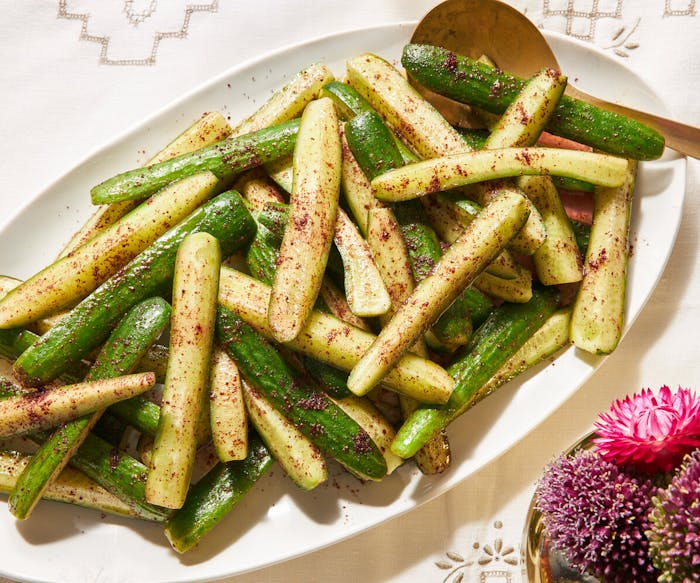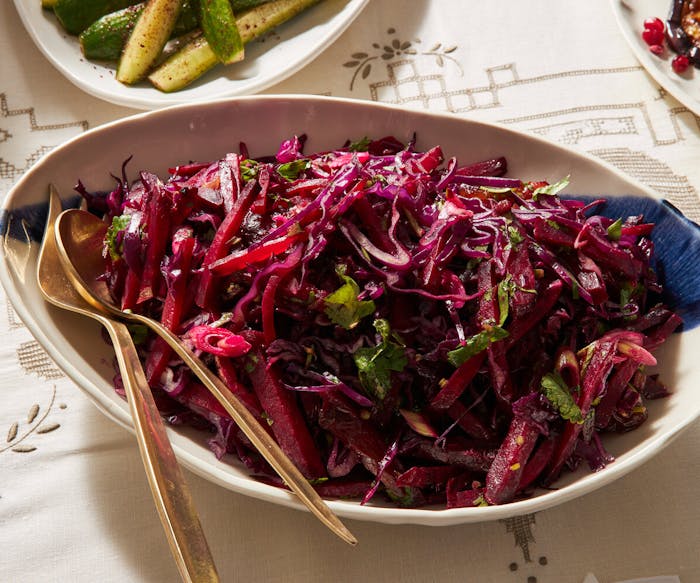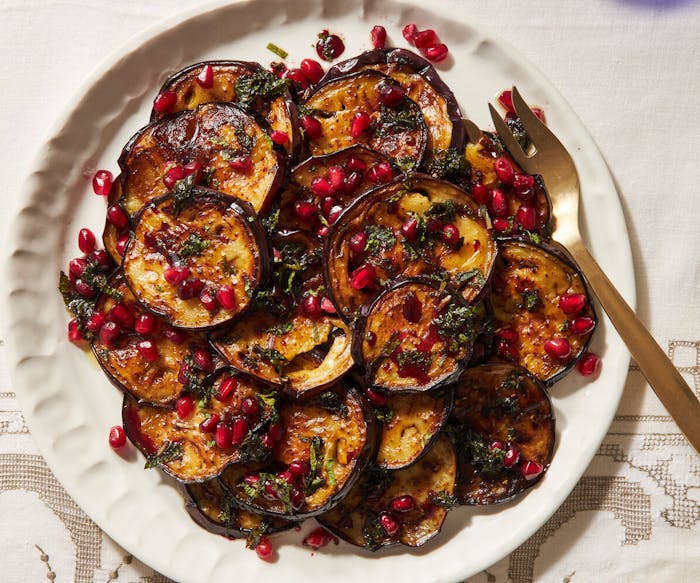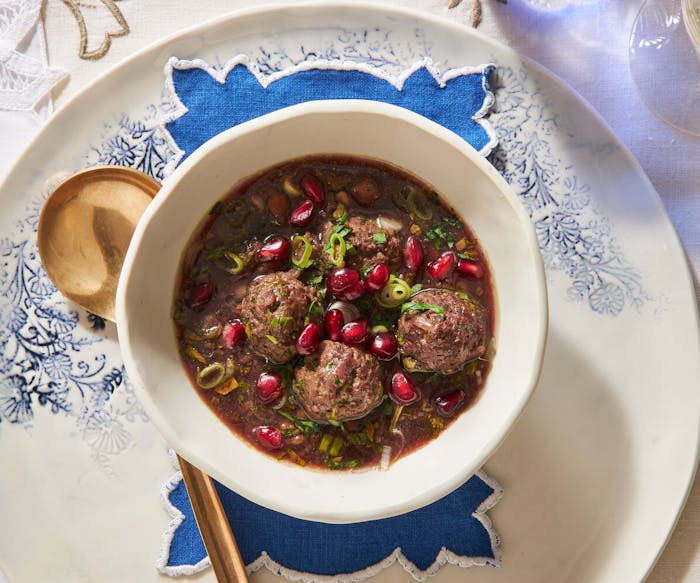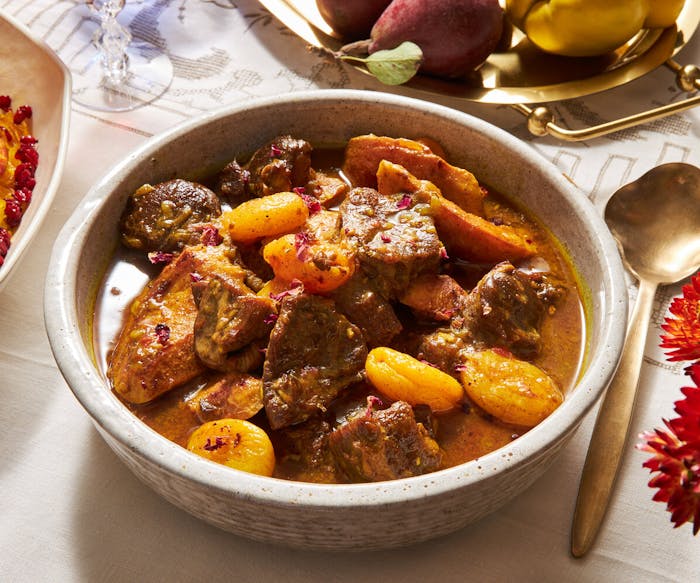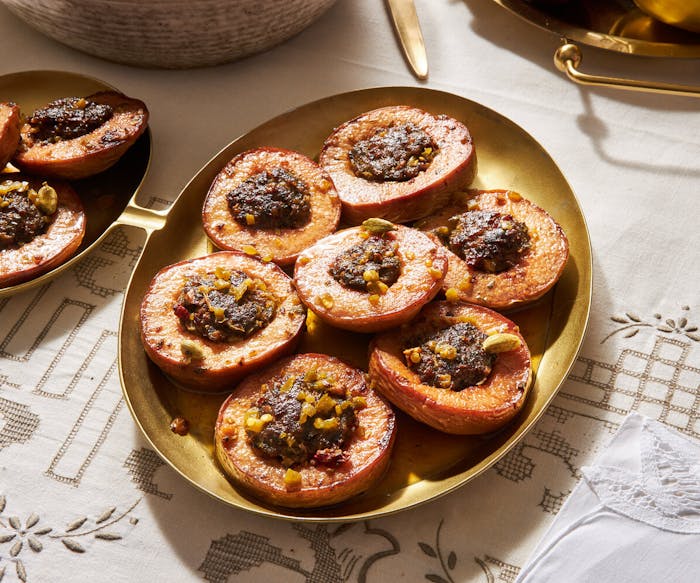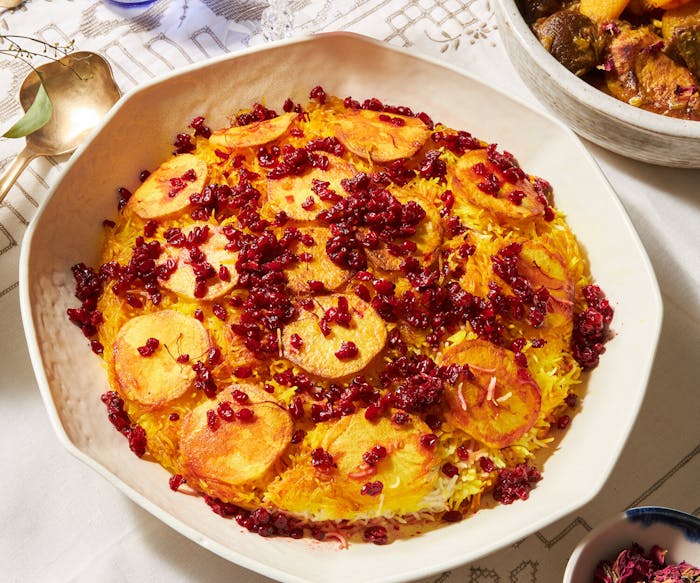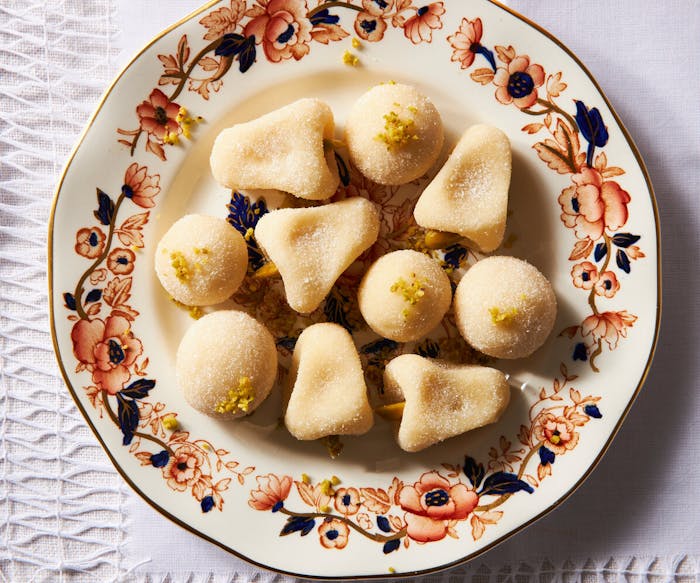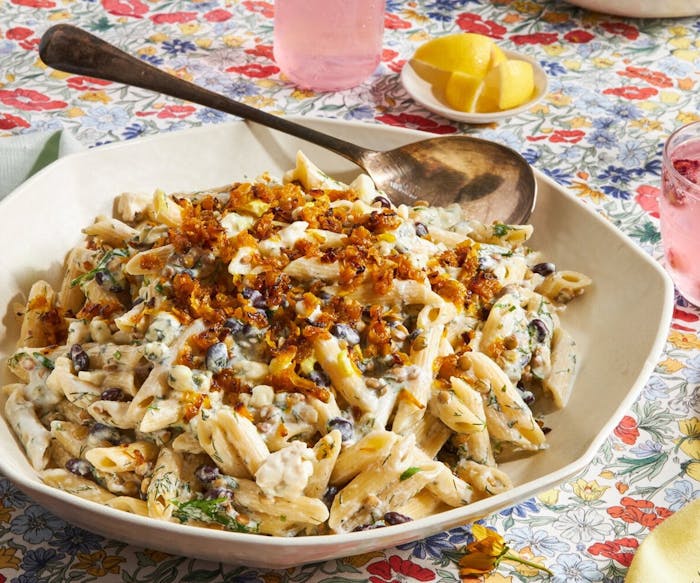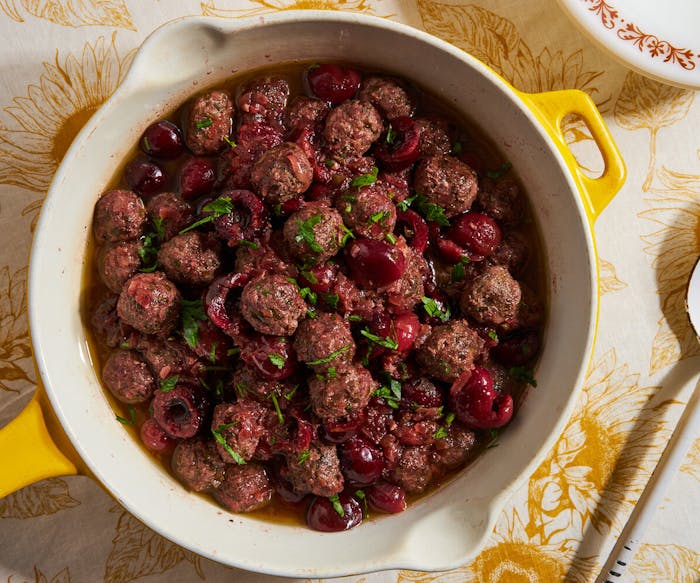Shared by Rottem Lieberson
A Persian Grandmother and Her Secret Rosh Hashanah Recipes
A Persian Grandmother and Her Secret Rosh Hashanah Recipes
Family Journey
Listen to the Story
Read more about Rottem Lieberson in “The Shavuot Pasta on the Laundry Line” and try her recipes for pasta with yogurt, beans, and herbs, and meatballs with cherries.
Acclaimed Israeli cookbook author Rottem Lieberson remembers eyeing her grandmother Hanom in her kitchen, carefully watching her moves as she added turmeric, saffron, and numerous other spices to a large pot on the stove. Guests would come over for a meal and remark on how good the food was. They would ask, Rottem recalls: “What did you put inside it?” Her grandmother would reply: “Nothing. Just a little bit of salt.”
Rottem never helped out in her grandmother’s kitchen and neither did anyone else, including Hanom’s three daughters. Like many of the best Persian home cooks, says Rottem, Hanom kept her recipes secret, even from family. In Persian culture, “This is the power of the mothers,” she explains.
When Rottem was just one, her parents moved from Kibbutz Naan in the center of the country to Tel Aviv, very close to Hanom’s home. “Most likely because my father wanted to be close to his mother's kitchen,” Rottem told us as we cooked with her earlier this year. She spent nearly every afternoon after school with her grandmother. Aunts and uncles always visited throughout the week too. Hanom would call the family to announce the daily menu and her children and their spouses would stop by for their favorite dishes, sometimes with bunches of fresh herbs in tow.
Hanom’s 10 children were born in Iran and after her husband passed away, she moved with nine of her children from Tehran to Shaar Haaliya, a settlement camp for immigrants to Israel, in 1955. Her eldest son stayed in Iran and later passed away, Rottem explains. Tragically, another of her sons passed away after the move.
Hanom held tightly to her eight children in Israel. “They would come to eat all the time. This was the most important relationship,” Rottem adds, and it centered around the table. “Any sign of emotion was expressed through food and cooking.”
On holidays like Rosh Hashanah, Hanom hosted up to 100 guests in her Tel Aviv apartment. The gatherings were “chaotic, but with a lot of love,” Rottem recalls fondly. The 30 or so grandchildren would escape to Hanom’s room and have pillow fights as the adults talked and lingered.
Her menu for each holiday remained the same, unchanging from one year to the next. “It doesn’t change at all and I love it,” Rottem says. On Rosh Hashanah, she served khoresh sib, a stewed meat dish made with fruit, gondi, ashe anar or meatballs with pomegranate soup, rice with barberries, a cold apple drink called faloodeh, and more. And following Persian tradition, she used expensive ingredients as a wish for a prosperous year.
It is in this repetition of dishes and traditions that a legacy was built, Rottem says. “This is the legacy, this is the power. I believe you give it to your children. They move it to their children. It’s in your body, in the blood.” Rottem continues to serve several of Hanom’s dishes at her Rosh Hashanah table, along with others she’s created.
Today, much of Rottem’s work as a blogger and cookbook author focuses on Persian cooking. “I feel the power of those recipes,” she explains. Some are generations old and others are her interpretation, “but still, the taste, the base is there… Food that is going generation to generation has so much responsibility.”
